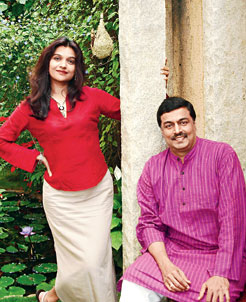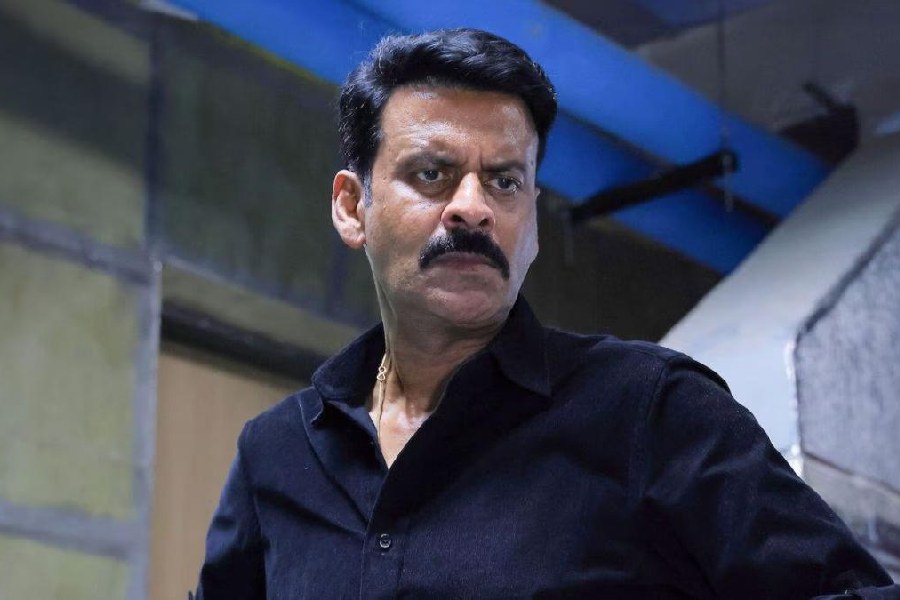-

TOUGH CHAPTER: Nilima and Vijay Bhat, a former colon cancer patient. The couple authored My Cancer is Me
Farida Rizwan's life-altering moment came in the middle of a chemotherapy session. 'I thought I was going to die,' recalls the Bangalore-based breast cancer survivor. Death didn't worry her as much as the feeling that she'd done nothing worthwhile all her life. 'I resolved that if I came out of it, I was going to be more than just a housewife and mother,' she says.
When Rizwan became cancer free a decade ago, she did two things — study psychotherapy and write a blog on her emotional journey through cancer. 'I was always a journal keeper. When a friend asked me about my experiences with the disease, I started putting it down on a blog,' says Rizwan, who counsels newly diagnosed cancer patients at Bangalore's Banjara Academy.
The blog is now turning into a book, tentatively titled Walking Down the Lane, says Rizwan, who is also scouting for a publisher.
The book, when published, will share shelf space with a line-up of cancer chronicles. Cricketer Yuvraj Singh's The Test of My Life was launched earlier this year. Bollywood actors and cancer survivors Manisha Koirala and Lisa Ray are writing about their battles with the Big C.
In the last two years, publishing firm Hay House India launched seven books on cancer. Four of these were by Indian authors. 'There is a growing market for this genre of books,' says Sanjana Roy Choudhury, publisher, Hay House. 'There is a lot more awareness about the disease. Also, real-life struggle stories are becoming popular reads among urban Indians.'
The World Health Organization estimates that by 2020 every family in India will have a cancer patient. 'The incidence of cancer has shot up in India. Patients and their caregivers are thirsty for information and also eager to share,' says Selvi Radhakrishna, oncoplastic breast surgeon and managing director, Chennai Breast Cancer Centre.
Radhakrishna is also the author of All about Breast Cancer. Published last year, it attempts to address the flood of questions that comes racing into a new patient's mind. 'The book handholds them through the various stages of diagnosis and follow-up,' the surgeon says.
When Megha Bajaj's mother was diagnosed with breast cancer in 2005, the Mumbai-based writer began hunting for information on the disease. 'All I found was medical journals that only doctors could decode. There were no first-person stories,' she remembers.
Bajaj's 2009 book Thank You, Cancer! attempts to fill the gap. 'It tells the story of 10 Indian women who've been through cancer and come out stronger,' she says. The second half of the book has experts talking of complementary therapies, including laughter therapy and meditation. 'In difficult situations, people find comfort in reading about others who've been in the same boat. They feel they are not alone,' Bajaj holds. Translated into Marathi and Gujarati, 5,000 copies of the book have been sold.
The books are not just for readers; often they are also therapeutic for the author. For Vijay Bhat, writing a memoir brought a sense of closure to the cancer chapter of his life. 'It helped me get the disease out of my system,' says the former advertising professional, who was diagnosed with colon cancer a decade ago. His book, My Cancer is Me, The Journey from Illness to Wholeness — which he co-authored with wife Nilima Bhat — was published in April; 3,000 copies of the book have been sold.
Cancer struck Bhat like a bolt out of the blue when he was 40 and working in London. 'I was living in the fast lane. Cancer made me confront my mortality and rethink my priorities,' he recalls.
Though the tumour was removed within a week, Bhat's life took a U-turn. He quit his corporate career, moved back to India and focused on being physically and spiritually healthy. He followed alternative therapies such as yoga and vipasana. 'Instead of painful chemotherapy sessions, I opted for Chinese and ayurvedic medicine. It worked,' Bhat adds.
He also researched the subject at length. 'The book is an attempt to put it all together in a capsule form,' says Bhat, who founded Sampoorna — an organisation working in the area of cancer and health — in Mumbai in 2004.
For Anagha Ghosh, too, writing about cancer was cathartic. A busy career woman — she's currently director at Shodhana Consultancy, a Pune-based social development body — Ghosh began looking for constructive engagement to keep busy at home after ovarian cancer confined her to a bed. 'I started writing my cancer story,' she says.
The second edition of Face to Face with Cancer — which narrates Ghosh's experiences of diagnosis, surgery and chemotherapy — came out last year. It's currently being translated into Marathi and Oriya.
With five books under his belt, bureaucrat Sudhansu Mohanty, currently additional secretary and financial advisor in the ministry of environment and forests, Delhi, considered himself a seasoned writer. But writing about his battle with carcinoid — a rare type of cancer — was different. 'I didn't let cancer pull me down emotionally. My book is about how I lived life uninterrupted by cancer, like it was just a toothache,' Mohanty says. Anatomy of Tumour hit bookstores two months ago.
The bureaucrat believes his book will help dispel the doomsday myths that revolve around cancer. 'My message is that it's not the end of the road,' he says.
Cancer, it is said, affects not just an individual, but an entire family. Which is why, A.P. Maheshwari focuses on how caregivers should stay emotionally upbeat in his book Mayan — which means mother in a Rajasthani dialect. An English translation of the book, originally in Hindi, will be out this year.
Maheshwari's mother was diagnosed with breast cancer in 2008. 'It was my job to keep her spirits up,' recalls the Delhi-based police official. He found that medication always worked better when she was in a positive frame of mind. 'The two go together,' he says.
Books clearly have a place in the aftermath of cancer. After all, for many it's a way to deal with it.














